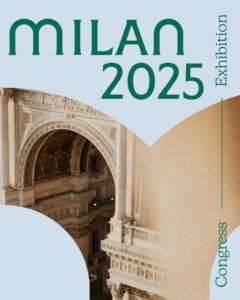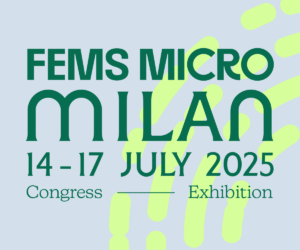Opening FEMS MICRO Milan, the 11th Congress of the Federation of European Microbiological Societies, is a great honour for me. As FEMS President, I am delighted to welcome more than 2,000 microbiologists to Milan this week. They will be coming from over 90 countries to enjoy several days of scientific exchange, lively discussions, debates – and will witness the creation of new connections, collaborations and friendships.
When the FEMS Board met over 18 months ago to start planning this Congress, we were united in our view that our main focus was on fostering networks. We wanted to bring microbiology researchers together from across Europe and the world, with an intention to provide the environment which created a seedbed for innovation: innovation born from sparks created by conversation and sharing ideas.
 We know that microbes and microbial research are key elements in solving some of the global challenges that collectively we must address. The role of FEMS MICRO in that endeavour is to foster connection and creativity found within our community.
We know that microbes and microbial research are key elements in solving some of the global challenges that collectively we must address. The role of FEMS MICRO in that endeavour is to foster connection and creativity found within our community.
The world we live in is complex and brings new challenges every day, which directly affect all of us: we have pressing and complex challenges to human and planetary health, within a context of global political, economic, and societal instability that the lab does not protect us from. It is true that there is much that is outside of our control as individuals, as researchers, and as members of institutions larger than ourselves.
But that doesn’t mean we are lacking in agency or ability to affect positive change. As an organisation, FEMS is choosing to step more intentionally into its role of bringing together the community of those of us working on microbes, with a focus on what microbes can do to help us solve these problems.
In designing FEMS MICRO we looked at how we could ensure that it provided opportunities for strengthening and building collaborations, for showcasing excellent science, and for providing a place to make it easier for microbiologists from all over the world to be active in working together in solving some of the knottier problems we see in front of us today. Sharing ideas on the role microbes can play in addressing the climate crisis and how microbiology can play a stronger role in climate advocacy, exploring the impact of emerging technologies on our work, addressing the challenges to research funding, and debating our own responsibilities in the erosion of public trust in science are all topics on the programme this year.
We also ensured there were many ways we could engage with each other: it is still important to share the latest research from the lab, but we have also created space for debates, and designed ways to stimulate formal and informal conversations.
Congress is very dear to my heart and very special, and I am especially proud to be President of FEMS as we launch this one. FEMS brings together scientists from all career stages, and there will be many first timers who will be presenting their work and sharing their ideas for the first time. You are the future of microbiology and collectively we must take action to create a future that we all are eager to step into.
In my opening address, I set some challenges for those attending Congress: take the unique opportunity of coming together for three days to learn from colleagues working on different branches of our science and from different parts of the world, to think about the future of the work that we do, and how we can, together, make a difference.
FEMS MICRO is not just a celebration of our science, but is a moment in time to enrich our work through building connections, networks and exchanging of ideas. This is how we are going to change the world.
Prof. Antonio Ventosa, FEMS President

